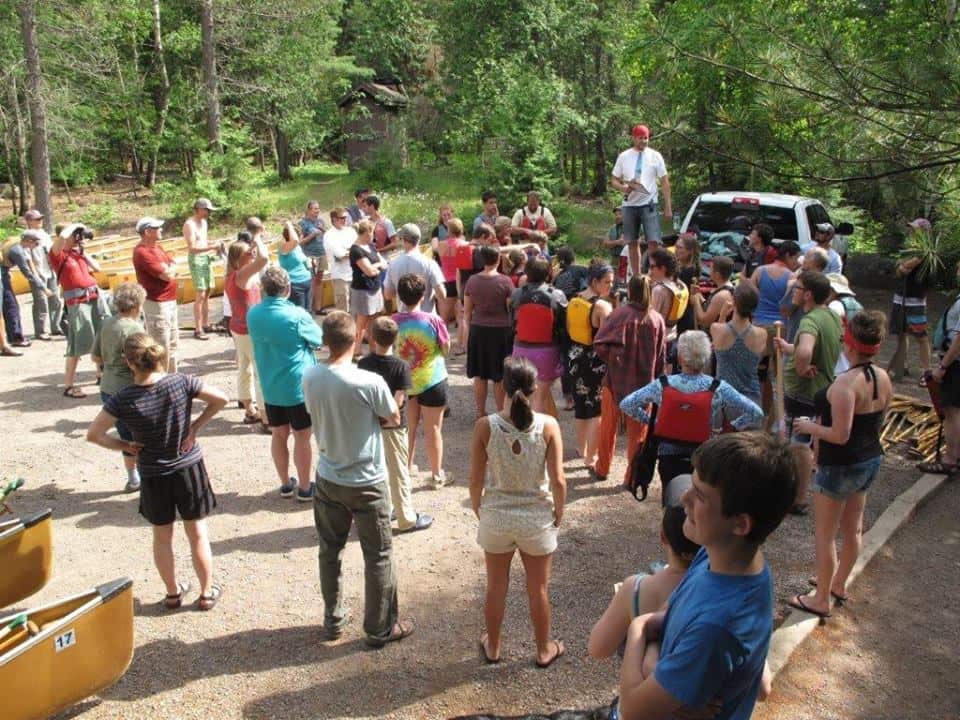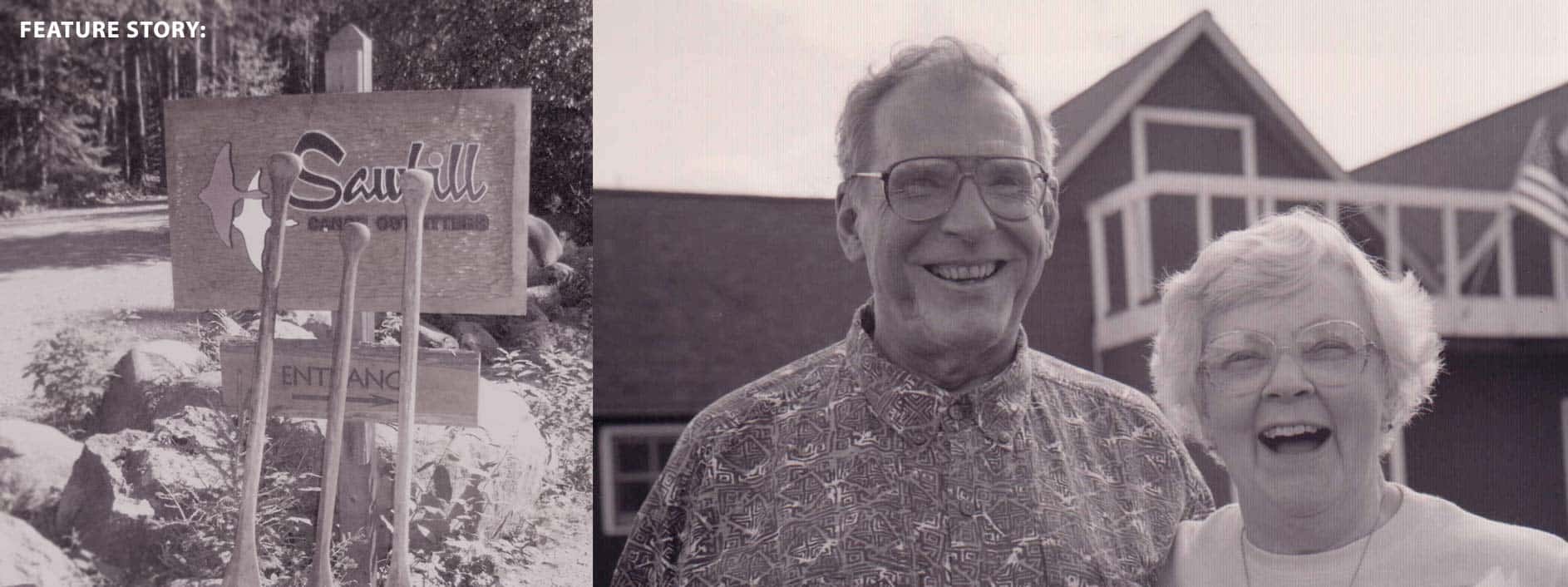
by Alissa Johnson
There is an outfitter at the end of the Sawbill Trail, to the northwest of Lutsen, Minnesota, where customers and staff return year after year and whose names are remembered. They become part of a kind of family tree, a network of people connected to the place and the family at its center. The Hansens, and now the Shirleys, have been running Sawbill Canoe Outfitters since 1957, creating more than a business. It’s a place where annual traditions, lifelong friendships and marriages have been born.
Most recently, Bill Hansen, son of the original owners, handed over the business to his daughter Clare Shirley and her husband, Dan, after owning it for 30 years. They run it with their 15-month-old daughter, Kit (born just in time for canoe season), in tow. Their story suggests that it’s still possible to combine business with the magic of introducing campers to canoe country and raising a family.
Growing up Sawbill
Bill has been known to say, more than once, that Sawbill is a great place to grow up and a great place to raise kids—that he knows because he’s done both. He spent his first summer on Sawbill Lake at the age of three, when he, his two siblings, and his parents, Frank and Mary Alice Hansen, lived in a one-room cabin at Sawbill Lodge.
His parents ran a fledgling outfitting business for the lodge, where the owner wanted someone to offer outfitting for guests. Bill’s dad worked as the dock boy and his mom ran the outfitter. The summer’s receipts totaled $300, with canoes renting for $2.80 per day.
It was a fit for the young family. Frank and Mary Alice secured a Forest Service operating lease and built the original Sawbill Canoe Outfitters building a quarter-mile from the lodge. Bill spent his childhood summers at Sawbill. By the age of six, he had access to his own motorboat. He started canoeing alone at seven or eight, and he had free reign of the lake and the woods.
Bill spent so much time exploring that Mary Alice implemented a rule: if he was out until after dark, he had to make his own dinner. He took his first solo canoe trip at the age of 12, paddled all over the Boundary Waters with a friend from Silver Bay and felt completely at home in the woods. “It was just great,” he says. “I fished and explored and hunted and paddled all over the place.”

Becoming a second-generation owner
Taking over Sawbill wasn’t a given—the family assumed that his older brother would do so. But just out of high school, Bill got to stay at Sawbill year round while the family returned to Minneapolis for the winter because the insurance company didn’t want the property unattended. He relished staying past Labor Day. Going back to the city for school had never come easy. “Just having to leave Sawbill was really hard for me. I just loved it there,” he said.
Though Bill spent a couple of years working for a TV station in Duluth and contemplated going to journalism school, there was only one thing he truly wanted to do: run Sawbill. Fortunately, his brother preferred teaching. Bill stepped into the business and gradually bought out his parents.
“In the years when I moved up there in [the 1970s, every] single labor day I was so glad I didn’t have to leave and go somewhere. I got to stay,” he said. “It is just a great business. The canoeing public is such a sweet public—happy, relaxed, easy to work with.”
A third generation
When Bill’s children were young, he and his wife, Cindy, never assumed that one of the four would take over the business. “It was a bit of a balancing act as they grew up. We wanted them to know that owning was open to them, but didn’t want to feel like I was pressuring them,” Bill said.
Their childhoods were not unlike his own, the northwoods and Sawbill their playground—though Bill concedes there were a few more guidelines, like making sure he and Cindy knew where the kids were.
“Sawbill is an unbelievable paradise for kids and very, very safe in terms of crime or any kind of threat… There’s a little bit of danger of getting lost in the woods, but we tried to train for that early and make sure that didn’t happen,” he said. They had the added benefit that so many campers were repeat customers, familiar to the family, and Sawbill employees became great mentors and friends as well.
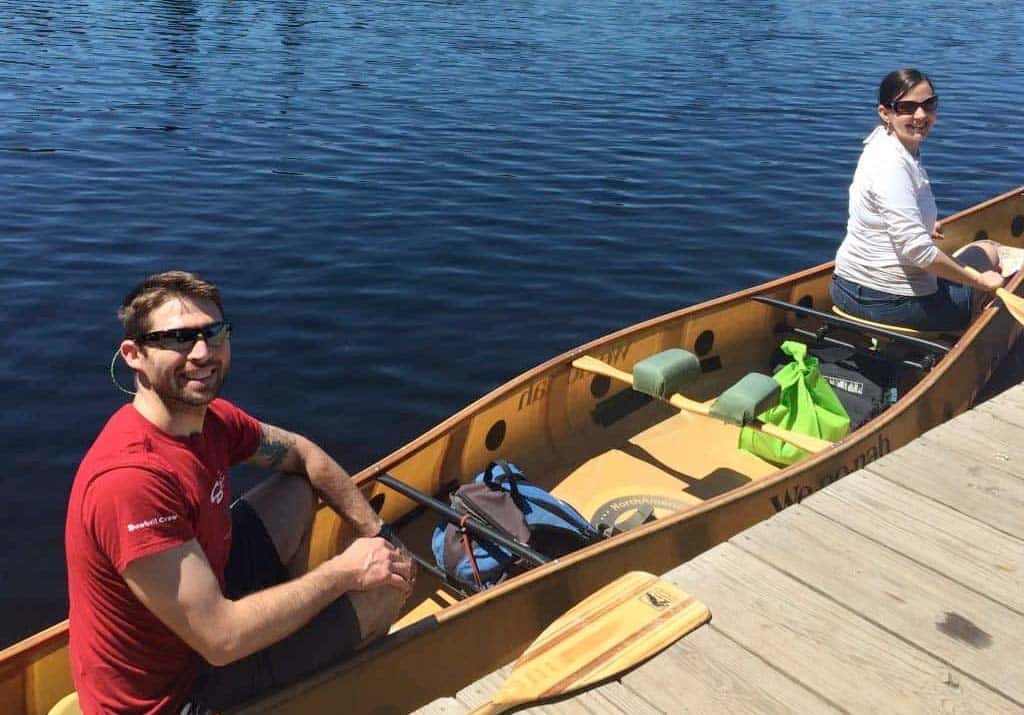
By the time Bill and Cindy prepared to sell the business, each of their children had gone away to school and to start careers. Clare and Dan were in Montana, where she worked as an attorney and he helped launch a green chemical company. After a Boundary Waters canoe trip, they announced their intent to buy the business.
As Clare explained, life was good in Montana, but something was missing. They traveled long distances to get to wilderness, and there was something alluring about working for themselves and living in a place as special as Sawbill. “It’s one of those things that gets in your blood and once there, it’s hard to let it go,” she said.
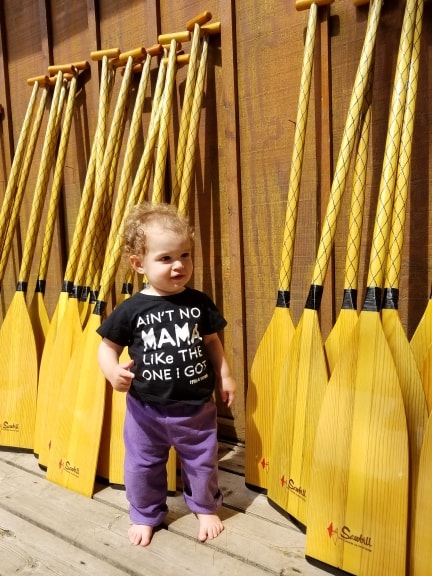
Continuing the legacy
Now in the midst of their second summer running Sawbill, Clare and Dan have a clear vision: continue the legacy her grandparents started. “Fundamentally, we’re not really changing anything, just some behind the scenes things to create more efficiency for ourselves,” Clare said.
They’ve implemented a new bookkeeping system, for example, and increased their use of the blog and Facebook to stay in touch with customers. But their focus remains on service, and remembering what Sawbill means to all the people who love it.
“We’re stewards of this thing that is bigger than us,” Dan said. “We’re the owners and in charge, but we really are just stewards of what has grown over the years and it’s our job to keep that alive. Fortunately our jobs are not centered around getting more business. We’re just holding on for the ride and making sure that customers are having the experience they’ve come to love and expect, which is a great place to be.”
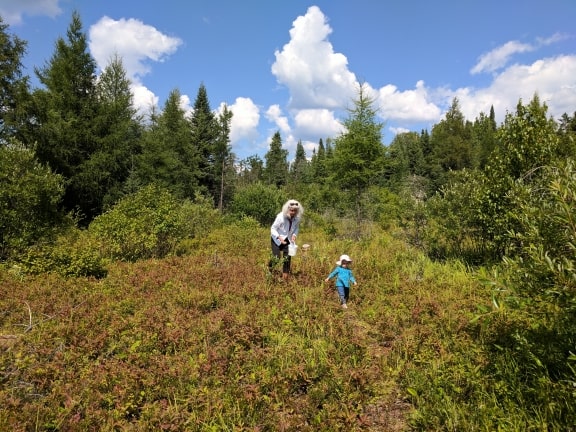
Looking to the future
These days, Bill and Cindy live in Grand Marais. They help out at Sawbill, but they’re also building new lives. Cindy works for North House Folk School. Bill is a part-time musician, the vice-chair of a regional philanthropic organization, the Lloyd K. Johnson Foundation, and a mediator for issues like land disputes. He’s also active with Save the Boundary Waters, a group working on the issue of sulfide mining—something close to the family’s heart. He has a gym membership for the first time in his life.
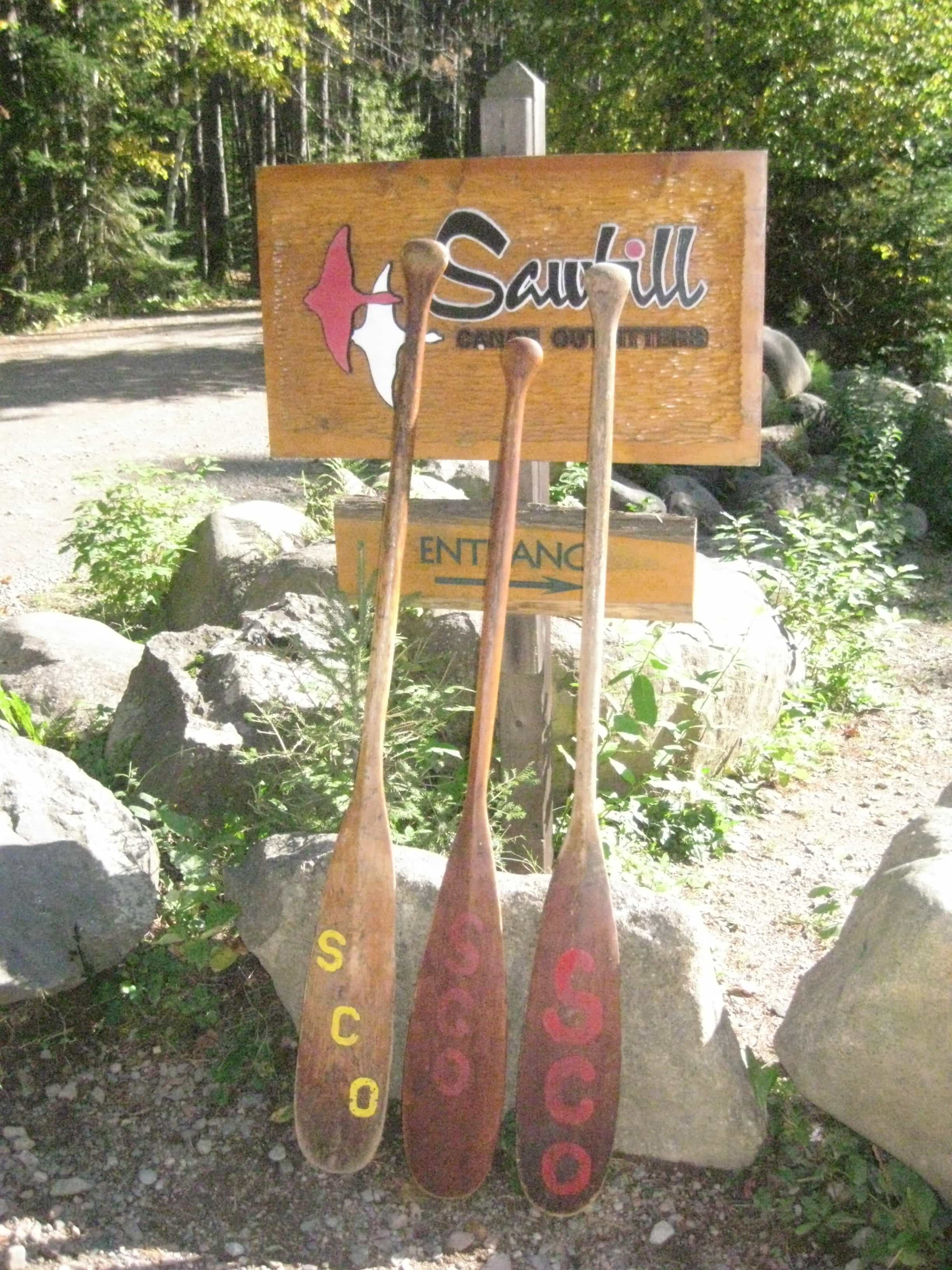
It’s a change of pace, but one that leaves Bill sounding upbeat, particularly since the outfitter is in capable, family hands. “It would be hard to walk away and never go back or only go back as a customer. After 61 years, you develop a lot of relationships, hundreds of them, some of them very deep and close, with people who are, on paper, customers, but really are friends and family,” he said.
And up at Sawbill, where there is an echo of Bill’s childhood in his granddaughter’s, it appears that some things truly never change: it’s a great place to be a kid. Just this summer, while Clare worked a busy rental desk, her daughter squirmed to get out of her arms. Clare had to choose—keep talking to her customers or run after Kit, who headed straight for the stairs. “One of our employees was standing in her path, issuing life jackets,” she said. “And without breaking his talk… he scooped down, picked my daughter up and kept issuing life jackets.”
